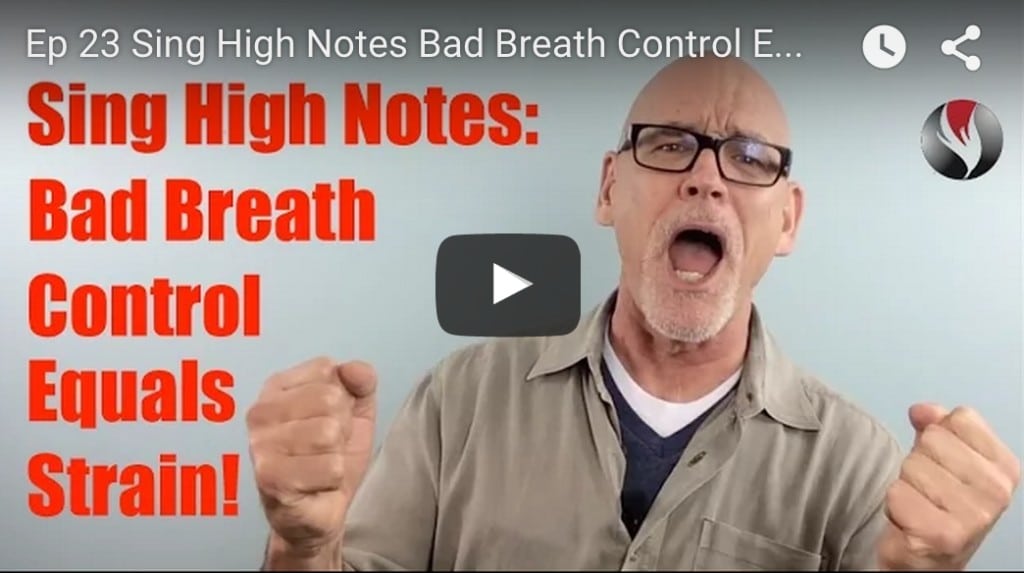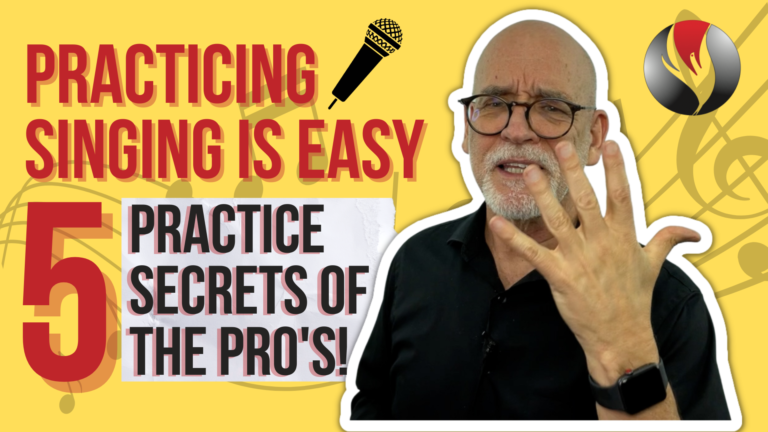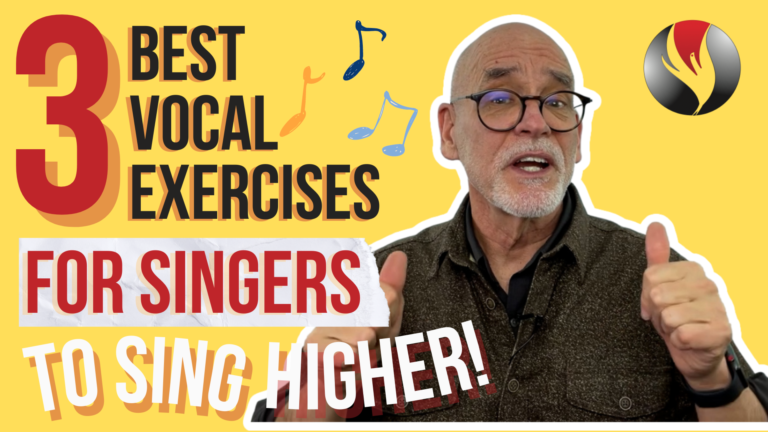Ep.23: Sing High Notes: Bad Breath Control Equals Straining!
To sing high notes, do we need to use more air or less? Watch this video to find out how the answer can make a huge difference in your ability to sing high notes successfully!
When you sing high notes, do you tend to sing louder as you sing higher and higher?
I used to do the same thing. Unfortunately that means we’re also creating excessive air pressure which causes us to strain and pinch the high notes.
Here’s what happens. When we sing higher, the vocal cords thin, stretch and increase in tension. Because of the thinning there is less tissue mass. I compare it to stretching a rubber band.
On the low notes the vocal cords start out thicker and heavier. As the pitch goes up, (pictured above right) the cords stretch longer which also helps reduce the overall mass or weight of the vocal cords, similar to this rubber-band. (higher note compared to the stretched rubber band below right)


With less weight or mass in the vocal cords, we don’t need as much air to get them to work. But because we tend to sing louder as we sing higher, we press more air against the vocal cords.
The vocal cords tighten and tense in order to hold the increased amount of air back so they can create more volume.
The tight vocal cords, under the increased breath pressure, tends to cause the external muscles to tighten, which causes the vocal cords to feel squeezed. So we sing louder hoping to keep the vocal cords working which causes more breath pressure, more squeeze and…you see the problem.
Let me demonstrate singing with too much volume, too much air pressure. At the end of the song “Why God” from Miss Saigon, it goes something like this. [Sings Demo]
I admit I was also pulling my chest voice as I was singing louder. But you could hear the increased volume increasing tension?
Let me try it with less volume and as a result, less air pressure. [Sings Demo]
That’s the high C. I’m not pushing it, I’m not driving hard. I backed off a little bit on the volume and how much air I’m pushing. Because of the condition of the vocal cords there was plenty of penetrating volume in that sound.
What’s the solution? Use less air, not more. Sing the higher notes with less push of air and volume. When you sing high notes, the high pitch causes your voice to soar up and over into the listener’s’ ear.
This is why a singer, singing high notes without a microphone, can be heard over the orchestra.
Decreased loudness will decrease the amount of air pressure against the vocal cords. This will improve your ability to sing the high notes without straining or reaching. This is part of good breath control.
Over time you can increase volume as your skill increases. This takes time and correct technique.
Singing too loud with too much breath pressure on high notes is often characteristic of the Pulled Chest/High Larynx vocal type.
Do you know your vocal type? I’m not talking about whether you are soprano, alto, tenor or bass. Your vocal type is what you tend to do when you sing.
Visit PowerToSing.com and take the vocal test, which I call the PowerTest. Take the quiz and discover your vocal type. Then visit the Knowledge Center and learn about your vocal type.
Download the free exercises for your vocal type and begin improving your voice today.
You can sing higher with beauty, confidence and power.
I’ll see you inside the next video.












Responses